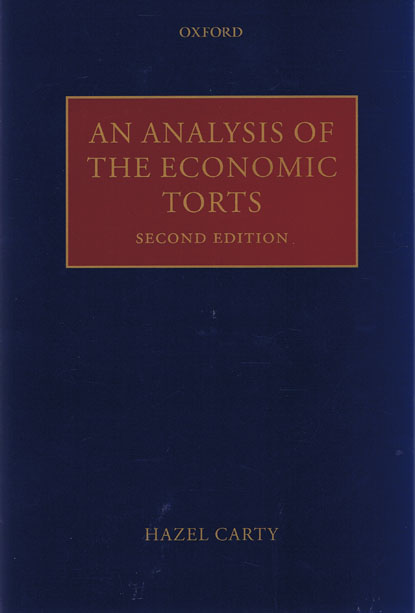
The economic torts for too long have been under-theorized and under-explored by academics and the judiciary alike.
In recent years claimants have exploited the resulting chaos by attempting to use the economic torts in ever more exotic ways. This second edition, as before, attempts to provide practical legal research to both explore the ingredients of all these torts - both the general economic torts (inducing breach of contract, the unlawful means tort, intimidation, the conspiracy torts) and the misrepresentation economic torts (deceit, malicious falsehood and passing off) - and their rationales. And, as before, an optimum framework for these torts is suggested.
However that framework has to take on board the apparent tension within the House of Lords as revealed in the recent decisions in OBG v Allan and Total Network v Revenue. Over 100 years ago the House of Lords in the seminal decision of Allen v Flood in theory set the agenda for the modern development of the economic torts. The majority in that case adopted an abstentionist approach to liability for intentionally inflicted economic harm, so that even where intentional and unjustified economic harm was inflicted, liability would not necessarily follow.
However, this clear framework for the torts was obscured by subsequent case law, leaving the economic torts in a hopeless muddle by the start of the twenty-first century. A chance to finally sort out this mess was presented to the House of Lords in 2007 in the shape of three conjoined appeals, reported under the name OBG v Allan.